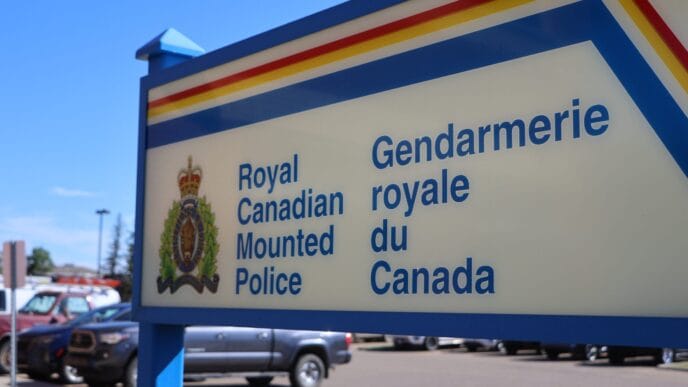A local Lloydminster historian has taken the virtual leap across the pond in her first international presentation.
Read more: Dixie: Remembering a “one-of-a-kind” horse
Susan Brazeau, a retired college instructor and local historian, gave her first international presentation on the topic of British Home Children in front of a group of interested Liverpool listeners.
More than 100,000 boys and girls were brought to Canada as child immigrants and indentured labourers between 1869-1948. Children were promised a better future and grand adventures in Canada. Some even came over believing they’d be cowboys in Canada. Siblings who arrived in the country together were often separated and sent to different homes.
A great deal of the children came through the Barnardo home. While other groups operated to connect local families with these children. Newspaper ads were often taken out to advertise the children and there was a growing want to have a British Home Child to work on a farm or in the home.
Many of these children were mistreated and suffered greatly in poor conditions, leading to them never discussing the topic in their later years. It’s estimated that between 12 per cent, or five-million Canadians, are descendants of British Home Children.
Brazeau gained interest in the topic when she started asking questions about if her grandmother, Grace Ruth Sillett, was a British Home Child.
She’s done over 30 presentations on the topic and says it’s an important one to learn about.
“We just learned about the one in Edmonton and here again. It’s because people are researching and researching and we keep finding more information,” said Brazeau.
Her opportunity to present internationally came as she followed a Facebook page from Liverpool.
“I’ve been following the Liverpool Family History Society on their Facebook page for years,” she said. “Someone on the page had asked if one of the Canadians on the page wanted to share their perspective on British Home Children.”
She took the opportunity to do a Zoom presentation for the group.
“All I did was give a brief overview then I concentrated on Canada,” said Brazeau, noting the presentation went on for over an hour.
The group, however, was very interested in the Canadian perspective of the topic.
“All of us talking and people asking questions. It was the number of responses that were given to my presentation,” she said, saying she got a very positive response.
The international presentation gave her a chance to connect with those at the other end of this issue.
“They’ve got people in Liverpool that already have done that side of what was happening to children and families in Great Britain,” said Brazeau.
She says the history of Home Children is important and it’s something people need to know.
“They just didn’t know how important this group of children was going to be, and how long this was going to last,” she said. “The children themselves just kept silent.”
The children affected by this movement didn’t want to talk about their experiences.
“It’s important for us to know this was a part of Canadian History,” she said.
Here in Lloydminster, she’s continued her presentations. On March 24 she presented in front of a Lakeland College history class about British Home Children.
Although the pioneers in Lloydminster were of British descent, she says as of now, there hasn’t been any evidence to believe any British Home Children were part of the original pioneers.
“They came to this area as adults, not as children,” said Brazeau.
“We had children coming from the Russel Training Farm in Manitoba and they came in Saskatchewan. Some of them came into Alberta,” she explained.
When it comes to the impact her presentations had, she told a story from a presentation in Saskatoon.
Brazeau was approached by a woman with a photo asking if Brazeau knew her family. Brazeau pointed her to another group holding the same photo, also looking for their family, reuniting potentially long-lost family.
For Brazeau, the research continues and the presentations will be ongoing in the community.

















Thanks, Chris! I appreciated your interest in the British Home Child history and interviewing me following my presentation. I have had such positive feedback and look forward to speaking further on this little known era of Canadian history!